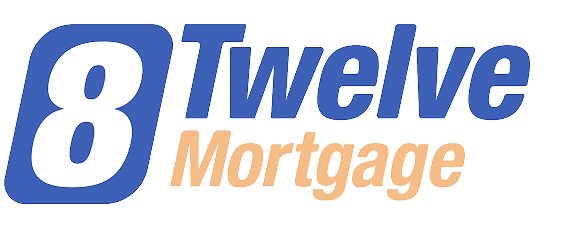
Summary
- Increase your payments and save on interest. Making extra monthly payments reduces the loan term and the overall interest paid, potentially saving you tens of thousands of dollars.
- Refinance or switch to bi-weekly payments for faster payoff. Refinancing to a shorter-term loan lowers interest costs, while bi-weekly payments effectively add an extra full payment each year, reducing interest and loan duration.
- Leverage lifestyle changes and debt consolidation to accelerate payoff. Cutting expenses, earning extra income, and consolidating high-interest debts can free up more cash flow for mortgage payments, helping you pay off your home loan quicker.
Nobody likes being in debt. And when it comes to a home loan, it can feel like an overwhelming burden that never seems to go away.
Fortunately, with the right strategies and a little bit of discipline, you can pay off your home loan quicker and finally be free of that financial weight.
In this guide, we will discuss:
- Increasing your monthly payments
- Refinancing to a shorter-term loan
- Bi-weekly payments
- Lifestyle changes
- Debt consolidation
By the way — are you having a hard time juggling different debts? We get it. Did you know that you can actually use the value you've paid off in your home to consolidate your debts into one monthly payment with way better interest rates? Book a free consultation to learn more today.
5 strategies to pay off a home loan faster
1. Increase your monthly mortgage payments
One way to start here is by calculating potential savings on interest by making extra payments on your home loan. It's a smart way to reduce the overall cost and shorten the loan term. Understanding how additional payments impact your mortgage will make it easier for you to commit to them. Here’s a simple guide to help you calculate these savings:
- Gather Loan Information: Identify your current loan balance, interest rate, and remaining loan term.
- Determine Extra Payment Amount: Decide how much extra you can afford to pay each month or year.
- Use an Amortization Calculator: Input your loan details and extra payment into an online calculator to see the effects.
- Compare Scenarios: Analyze the total interest paid and the loan payoff date with and without extra payments.
Worked Example:
Imagine you have a $300,000 mortgage with a 3.5% annual interest rate and a 30-year term. Without extra payments, you would pay approximately $185,000 in interest over the life of the loan. If you decide to pay an extra $200 each month:
- New Monthly Payment: $1,347 (original) + $200 (extra) = $1,547
- Total Interest Paid: Approximately $144,000
- Interest Savings: About $41,000
- Loan Term Reduction: The mortgage could be paid off about six years earlier
By making consistent extra payments, you not only save a substantial amount on interest, but also become mortgage-free several years ahead of schedule.
2. Refinance to a shorter-term loan
Another way to save money on your mortgage is by refinancing to a shorter-term loan. For example, if you currently have a 30-year mortgage, you could refinance to a 15 or 20-year mortgage with a lower interest rate. By doing so, you'll pay less in interest and own your home outright in half the time.
However, before jumping into refinancing, there are a few things to consider:
- Closing costs: Refinancing will come with closing costs such as appraisal fees and lender origination fees that can add up quickly. Make sure to factor these costs into your decision.
- Credit score: Your credit score plays an important role in determining your interest rate for a new mortgage. Refinancing may not result in significant savings if you have a lower credit score.
- Debt-to-income ratio: Lenders also consider your debt-to-income ratio when deciding whether or not to approve your refinance application. Make sure you have a low DTI before applying.
- Higher payments: Since the loan term is shorter, you’re paying off the same mortage in less time — this means your monthly payments will increase.
If the numbers make sense and you can secure a lower interest rate, refinancing to a shorter-term loan can save you thousands of dollars and reduce the time it takes to pay off your mortgage.
3. Consider bi-weekly payments
Another strategy to pay off your mortgage faster is by switching to bi-weekly payments instead of monthly. This means that instead of making 12 full monthly payments, you'll make 26 half-payments throughout the year. This results in an extra full payment being made towards your principal balance each year.
For example, let's say you:
- Buy a $450,000 home
- With 20% down payment
- Financed with a 30-year, fixed-rate mortgage at 5% interest
With monthly payments:
- Monthly payment: $1,932
- Payment frequency: Monthly
- Total interest: $326,984
- Time to pay off: 30 years
With biweekly payments:
- Biweekly payment: $966
- Payment frequency: Biweekly
- Total interest: $258,074
- Time to pay off: 26 years
The biweekly payment approach saves over $68,000 in interest and reduces the payoff time by 4 years compared to monthly payments.
What are the benefits of bi-weekly payments?
- Faster payoff: By making extra half-payments throughout the year, you'll end up paying off your mortgage early — much faster than if you stuck to traditional monthly payments.
- Reduced interest: Similar to lump-sum payments, bi-weekly payments also result in a lower overall interest paid on your loan.
- Better budgeting: With bi-weekly payments, you'll have a more consistent and manageable payment schedule compared to monthly payments. This can help you budget more effectively and avoid the stress of making one large monthly payment.
Before switching to bi-weekly payments, check with your lender if they offer this option and if any fees are associated with it. Additionally, confirm that the extra half-payments apply toward your mortgage principal instead of just being held for the next full payment. This will ensure that you're getting the maximum benefits.
4. Reduce overall mortgage debt through lifestyle changes
While refinancing and making extra payments can help you pay off your mortgage faster, another effective strategy is to reduce your overall mortgage debt through lifestyle changes. Here are some ideas:
- Cutting back on unnecessary expenses: Take a look at your spending habits and see where you can cut back on unnecessary expenses. This money can then be put towards making extra payments on your mortgage.
- Generating additional income: Consider taking up a side hustle or freelance work to generate additional income that can be put towards paying off your mortgage.
- Renting out extra space in your home: Another option is to rent out extra space in your home on platforms like Airbnb or by getting long-term tenants. This additional income can also be put towards paying off your mortgage faster.
By making some lifestyle changes, you can free up more money to put towards reducing your overall mortgage debt and ultimately becoming debt-free sooner.
5. Use debt consolidation loans to consolidate high-interest debt
If you have other types of debt with high interest rates, such as credit card debt or personal loans, it may be beneficial to use a debt consolidation loan to pay off these debts.
By consolidating all your high-interest debt into one loan with a lower interest rate, you can save money on interest and make it easier to manage your payments.
How does a debt consolidation loan work?
- Combines multiple debts into one: A debt consolidation loan combines all your high-interest debts into one single loan.
- Lower interest rate: The new loan typically has a lower interest rate than the individual debts, saving you money on interest payments.
- Single monthly payment: Instead of making multiple payments to different creditors, you only have to make one monthly payment towards the debt consolidation loan.
Functionally, that means taking out a new loan with a lower interest rate (often something like a home equity loan) to pay off your old ones, while you make smaller, more manageable payments to your new lender.
However, it's important to note — debt consolidation loans work best if you have debts with high interest rates and have some difficulty managing monthly payments. Depending on your financial situation, there may be other useful options!
(Heads up — Lotly can work with you to understand your financial health, and work with our network of 50+ lenders across Canada, to find the best debt consolidation loan option customized for you).
Overcome your debt with Lotly today
Let's recap what we've covered so far:
- Increase your payments and save on interest. Making extra monthly payments reduces the loan term and the overall interest paid, potentially saving you tens of thousands of dollars.
- Refinance or switch to bi-weekly payments for faster payoff. Refinancing to a shorter-term loan lowers interest costs, while bi-weekly payments effectively add an extra full payment each year, reducing interest and loan duration.
- Leverage lifestyle changes and debt consolidation to accelerate payoff. Cutting expenses, earning extra income, and consolidating high-interest debts can free up more cash flow for mortgage payments, helping you pay off your home loan quicker.
Debt can weigh pretty heavily on your mind, but with the right strategies, it's possible to overcome it and achieve financial freedom.
Lotly understands that every individual's financial situation is unique and requires a personalized approach. That's why we work with our network of 50+ lenders across Canada to find the best debt consolidation loan option for you. Get in touch today to see if it's the right fit!
Frequently Asked Questions
How can I pay off my 30-year mortgage in 10 years?
There are several ways to pay off your 30-year mortgage in 10 years, such as increasing your monthly payments, refinancing to a shorter-term loan, or leveraging lifestyle changes and debt consolidation. Each option has its own benefits and considerations, so you should consult with a financial expert before making any decisions.
Is it good to pay off a home loan early?
Paying off a home loan early can have several benefits, such as saving on interest costs and reducing financial stress. However, it's important to weigh the pros and cons and consider your individual financial situation before making any extra payments towards your mortgage. It may be more beneficial to allocate that money towards other debts or investments instead.
What is the fastest way to pay off my house?
The fastest way to pay off your house is by increasing your monthly payments, making extra lump sum payments whenever possible, and avoiding unnecessary expenses. You can also consider refinancing to a shorter-term loan or using debt consolidation strategies to free up more money for mortgage payments.





